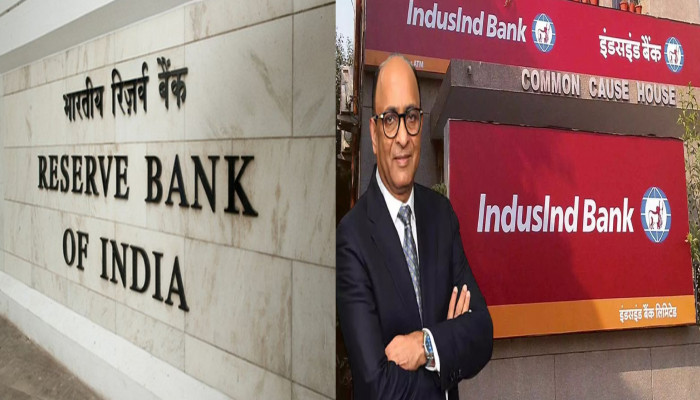RBI approves executive committee to supervise IndusInd Bank’s operations
- In Reports
- 06:01 PM, Apr 30, 2025
- Myind Staff
The Reserve Bank of India (RBI) has given approval to set up a temporary "Committee of Executives" to handle the operations of IndusInd Bank after the sudden resignation of its Managing Director (MD) and Chief Executive Officer (CEO), Sumant Kathpalia. The bank shared this information in a regulatory filing on Wednesday.
IndusInd Bank has set up an interim committee to manage the transition. The committee will include Soumitra Sen, the Head of Consumer Banking, and Anil Rao, the Chief Administrative Officer. They will operate under the supervision of an Oversight Committee made up of the Board’s Chairman and the heads of the Audit, Compensation and Nomination, and Risk Management committees. The Reserve Bank of India (RBI) approved this arrangement through a letter dated April 29. The arrangement will stay in place until either a new MD and CEO is appointed or for up to three months after the previous CEO's departure—whichever comes first. IndusInd Bank stated that it had reached out to the RBI to get approval for this plan to ensure smooth governance during the transition.
“The Bank is taking all necessary steps to ensure stability and continuity of its operations while maintaining high standards of governance,” the filing stated. In the face of mounting worries about losses resulting from underreported derivatives transactions, Kathpalia resigned on Tuesday. The previous day, Arun Khurana, his deputy, had quit. In his resignation letter, Kathpalia wrote, “I undertake moral responsibility, given the various acts of commission and omission that have been brought to my notice.” The controversy centres around claims that derivative contracts were ended too early and that profits were inflated, which gave a false picture of the bank’s financial health. While Kathpalia led IndusInd through significant balance sheet growth—growing from Rs 4.24 lakh crore in March 2020 to Rs 5.43 lakh crore by December 2024—his time in charge was also marked by regulatory issues.
These included penalties from the RBI for failing to follow KYC rules, breaking deposit interest regulations, and allowing unauthorised loan disbursements. The RBI had already shortened his term twice before giving him a final one-year extension in 2024. “I think they’re uncomfortable with my leadership in running the bank, and we have to respect that… This is a test for the bank, as well as for succession planning,” he had said.







Comments